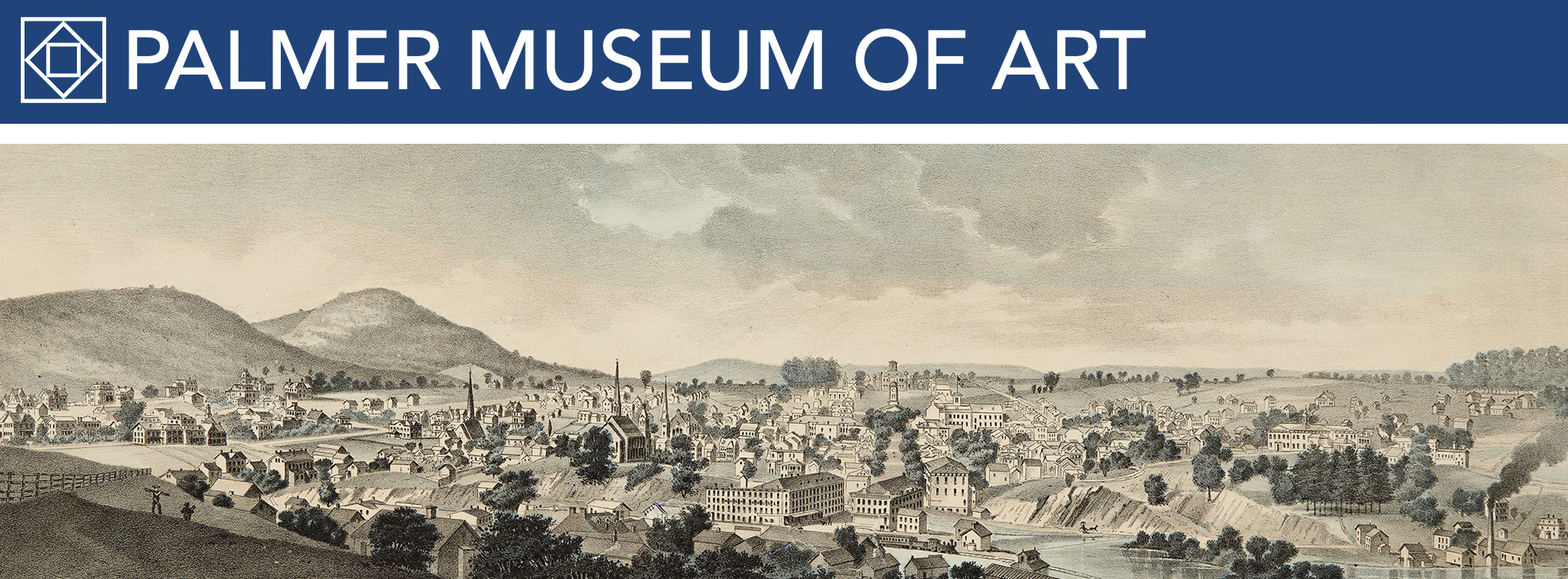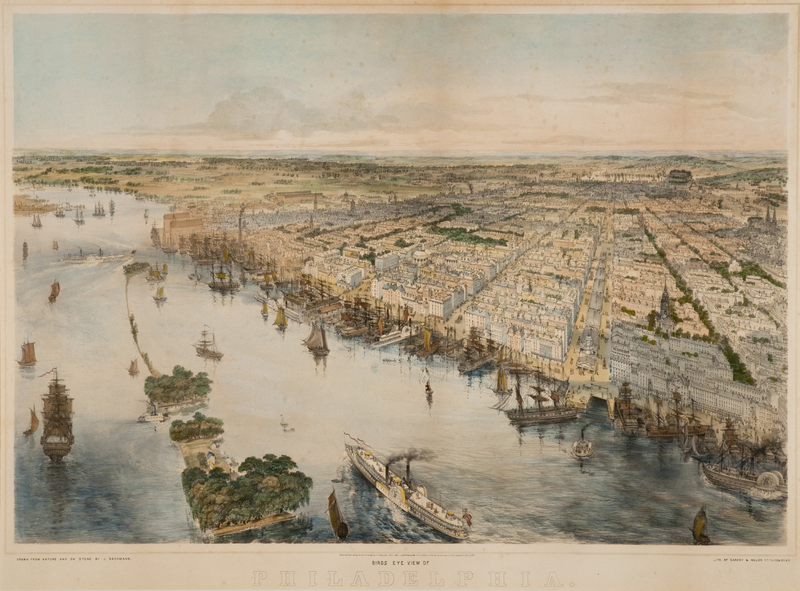Bird’s Eye View of Philadelphia
Item
Title
Bird’s Eye View of Philadelphia
Creator
John Bachmann
American, b. Switzerland, 1814–1896
Printed by Sarony & Major, New York
Published by William & Stevens, New York
American, b. Switzerland, 1814–1896
Printed by Sarony & Major, New York
Published by William & Stevens, New York
Date
1850
Materials
Color lithograph with additional hand coloring
Measurements
24-3/4 x 33-3/8 in. (62.9 x 84.8 cm)
Description
This spectacular view of Philadelphia, looking southwest from Camden, New Jersey, across the Delaware River, was created by John Bachmann just a few years after he emigrated from Switzerland. The bird’s-eye vantage point, though in use for some time in Europe, was new to this country, and Bachman’s application of the technique, in depicting major metropolitan areas from Boston to New Orleans, helped to popularize it as a means of capturing entire towns cities within a single frame.
One of the great benefits of these city views is what they record of features that have long since faded into history. The two islands in the lower left, for example, were once joined together as Windmill Island. In 1838, a canal was dredged through its center in order to accommodate ferry traffic between Camden and Philadelphia, creating Smith Island (nearest to the viewer) in the process. The islands were popular summer attractions; but in 1891 the federal government began to remove them in order to improve the river channel, and by 1897, they had disappeared entirely.
One of the great benefits of these city views is what they record of features that have long since faded into history. The two islands in the lower left, for example, were once joined together as Windmill Island. In 1838, a canal was dredged through its center in order to accommodate ferry traffic between Camden and Philadelphia, creating Smith Island (nearest to the viewer) in the process. The islands were popular summer attractions; but in 1891 the federal government began to remove them in order to improve the river channel, and by 1897, they had disappeared entirely.
Source
Palmer Museum of Art, The Pennsylvania State University, partial gift and purchase from John C. O’Connor and Ralph M. Yeager.
Identifier
86.540
Rights
This image is posted publicly for non-profit educational uses, excluding printed publication. Other uses are not permitted.

